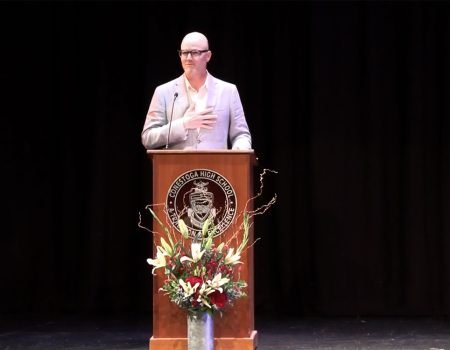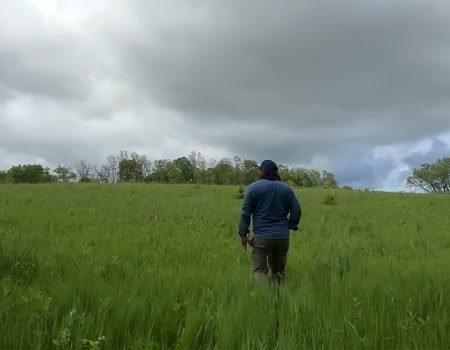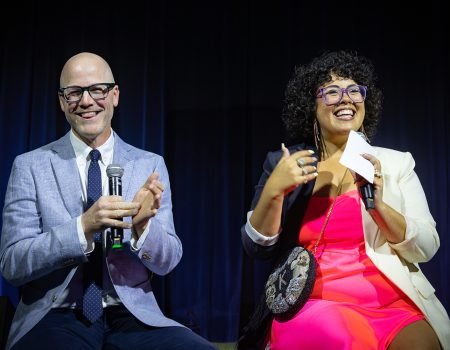Set The Moon
It’s one o’clock in the morning. Producer Guy Benny and I are toiling on my forthcoming EP, “The Rivington Sessions,” when I turn to him and say, “At least let me buy you dinner.”
“Nah, I’m fine, thanks,” Guy says. “I think there’s a Pepsi in the fridge.”
It was that kind of night. Guy and I worked into the small hours of morning fueled solely by Pepsi, Pacifico, and the hope that something kinda’ magical was happening.
The Space is an old Vaudeville theater on the Lower East Side just north of the Williamsburg Bridge on Rivington and Attorney. Guy and fellow Dough band mate Walker T. Pettibone have converted the 7500 square foot theater space — complete with 90-foot ceilings — into a recording studio with a few rehearsal rooms.
Truth be told, it’s a bit of a ratty space. The walls are tagged with graffiti. The floors are covered with tattered rugs, and strewn with instrument cables and amplifiers. The bathroom is a port-a-john in the garage. But it lends the space some Boho Chic. It feels a little edgy because, well, it is a little edgy. It’s the LES.
We got rolling around nine o’clock or so. I was playing live to tape. Guy had me singing into a beautiful Neumann, and playing into two unidirectional AKGs. I was alone in this huge space. Guy was in my headphones, and on a TV monitor just over my shoulder.
“So what are we goin’ for here,” he asked.
“I’m just trying to capture a few moments,” I said. “I don’t want to be too precious about it. Basically, a bum chord or a major league off note is all that’s gonna’ force us to take it again.”
I started with “Harder To Believe,” which I got in two takes. “Milk & Honey” was a little more challenging. I played my first pass a little too big. “Sorry dude, lemme’ take it again.” Guy called me on it. “Dude, never apologize for wanting to get it right.” Good advises. I got it on the second take.
I couldn’t hear all that well in my headphones, but best as I could tell, my voice was doing what it’s supposed to, and then some. The great thing about good mics is that they enable you to lay off all of the projection you’re usually saddled with. They don’t need to be able to hear you in the back of the theater. You can whisper in tune and it’ll sound pretty cool.
“I think we’re capturing some magic here, dude.”
Now, I love Guy, but in the moment, I was a little dubious. Producers are supposed to be supportive. I mean, are you going to perform better when someone gives you props, or knocks your chops? Duh. Still, it did sound fine to me. But what do I know? What can I tell? Weird, right? I’ve been singing for twenty years (my whole life, really), and releasing records since I was twenty. Still, there is something kind of mysterious about it. I don’t really have any control over it, in a weird sort of way. I hear golf is like that: the less you think about it, the better you do. Anyway, I appreciated Guy’s support.
There was a whole lot of chaos swirling around the studio concurrent to my recording. A band was rehearsing downstairs. Guy did his best to block out their sound, erecting huge walls of soundproofing, blankets and pillows. Dudes kept knocking on the door. The phone was ringing off the hook. But somehow, oddly, I remained calm. Even though what we were doing was permanent, the stakes weren’t that high. It was just one moment. I think my audience — you? — get that. And everything was flowing.
Which doesn’t mean I wasn’t asking myself, ‘Did that just suck?’ I was, and it may have. I guess I’ve been writing, recording and performing songs long enough to know that “Dear Elizabeth” is going to sound different on a sweltering summer night in a Vaudeville theatre on the Lower East Side than it will at a living room performance in a swank Cleveland apartment.
After a few false starts, I nailed “Cry” in its first full run through. Guy said he dug the tune, which was great to hear, ‘cuz, to me, its one of my most risky. I tried really hard to not even think about what’s cool or not when I wrote it, which shows.
Cry if you want to
You’re not losing a friend
I’ll never leave you
I remember you when
I couldn’t save you
No miracle came through
We had to save ourselves
I mean, that some earnest stuff. And it sounds it. I was hushed as I sang it, almost whispering. I strummed as lightly as possible. In the end, I guess it was kind of a magical moment after all.
One of the reasons I wanted to record at The Space, in addition to Guy’s producing skills, and the vibe of the room, is their gear. They’re pretty tricked out: racks and racks of old school, analogue affects. And Guy didn’t disappoint. He pulled out the big gun: the EMT 140 reverb plate. “I know how you like Dylan,” he said later. “He used the EMT a lot.” It’s basically a huge slab of metal with a few speakers, a few microphones, and a mechanism to vibrate the plate, all within a big wooden box. That’s the difference between demoing at home, and recording with Guy. That’s the stuff that makes a record a record.
Of course, it’s not just the equipment, or the space, that makes a record. And I guess that’s my point. It’s opening up to the experience, and the variables: the shape of the moon, the weight of the air, the quality of light. But it’s also the sweat, and love of the guys stepping out of the recording studio — stomachs empty, body numb, heads spinning — into the first signs of morning. That’s what makes a record.
And it is. Or it will be. A record, I mean. It’s gonna’ be called “The Rivington Sessions.” Guy’s mixing tonight, and mastering tomorrow. Secret Agent Josephine is already hard at work on the album cover. Then? Not sure. I may release a few hard copies (aka, actual CDs), but principally, it’s for iTunes. Scratch that. Principally, “The Rivington Sessions” is for you.



